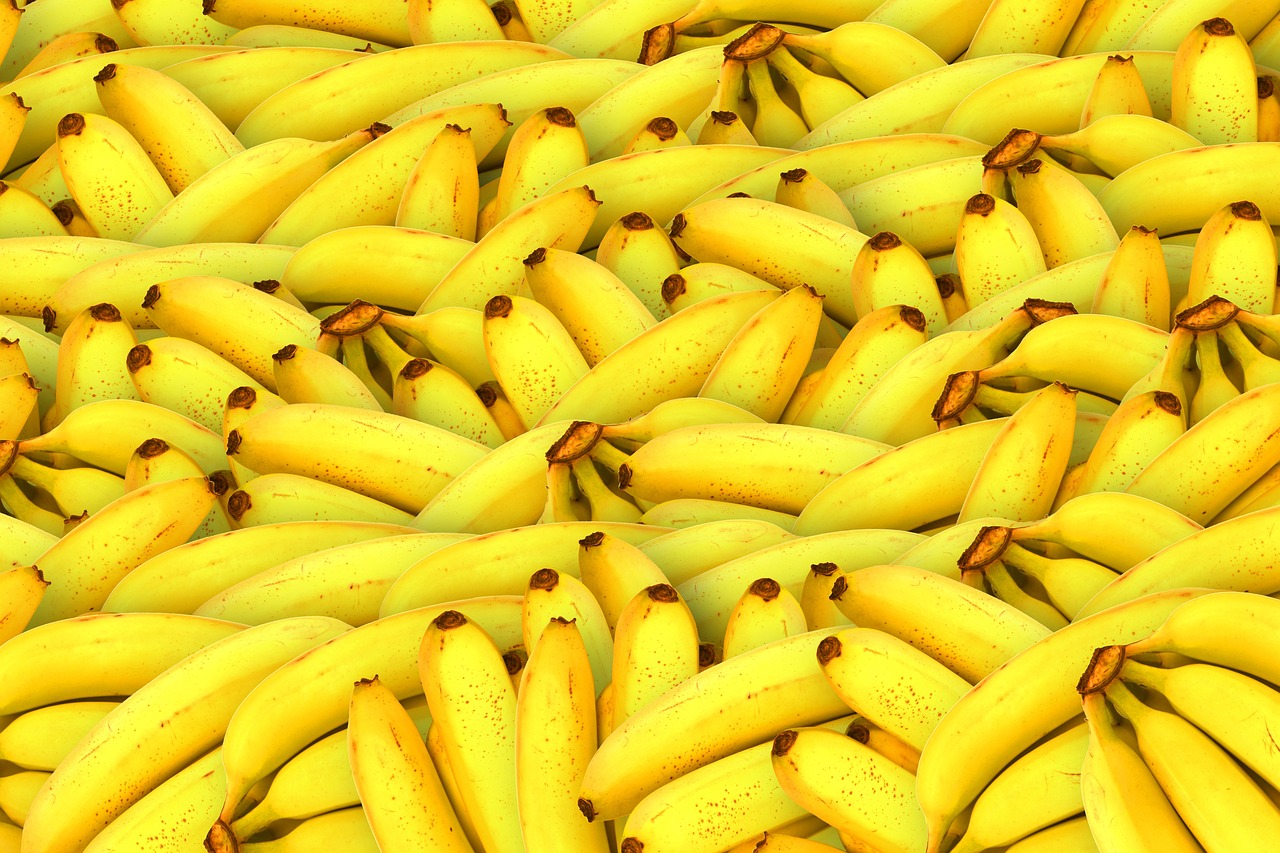Banana Health Benefits
Bananas are a delicious, convenient source of energy. They’re a natural pre-workout snack and also offer many other health benefits including fat-burning, muscle-building, digestive support and immune system boosts.
The bananas most often sold in the United States and Europe are the Cavendish variety, which has a firm peel that travels well. Both ripe and unripe bananas contain pectin and resistant starch, which help moderate blood sugar levels after a meal and promote healthy digestion.
Carotenoids
Bananas, which are technically considered berries from a botanical point of view, contain the antioxidants vitamin C and tryptophan. These nutrients help keep the immune system strong and support normal brain function and mood.
The potassium in bananas promotes healthy blood pressure and heart health. Research has linked a diet high in potassium to a 26% lower risk of heart disease.
Eating bananas helps prevent heartburn by thickening the protective mucus layer of the stomach and reducing acid reflux. Potassium can also reduce muscle cramps after exercise and help heal and build muscles more effectively.
Fiber
Bananas contain both soluble and insoluble fiber, with one medium banana providing 3 grams. This fiber can reduce LDL or “bad” cholesterol, lower blood sugar levels, ease high blood pressure and protect against heart disease.
Green, unripe bananas are a good source of resistant starch. Your body can’t digest this carbohydrate, but it ferments in the large intestine to feed healthy bacteria that promote colon health.
Vitamin C is plentiful in bananas, with one medium fruit providing 11 percent of your daily requirement. This nutrient is an antioxidant that fights free radicals, protects the immune system and may lower the risk of asthma.
Tryptophan
Bananas contain the amino acid tryptophan, which the brain uses to produce serotonin and melatonin, two mood-enhancing neurotransmitters. Studies suggest that a high-tryptophan diet, such as one that includes bananas, can help reduce depression symptoms and improve sleep.
The carbohydrates in bananas and vitamin B6 enhance tryptophan absorption in the brain, where it’s converted to serotonin, helping you relax and fall asleep. Bananas also are rich in potassium, which helps reduce nighttime muscle cramps that can disturb sleep.
Bananas are low-glycemic, which means they don’t cause rapid increases in blood sugar levels. This makes them a good choice for people with diabetes.
Resistant starch
Bananas contain resistant starch, which is a type of dietary fiber that your body cannot digest. When unripe, bananas have about 70% starch; this turns to sugar and other simple carbohydrates as the fruit ripens.
When eaten, the resistant starch and pectins in a banana are fermented by beneficial bacteria that produce short-chain fatty acids like butyrate, which promote colon health. In addition, potassium in bananas helps reduce the risk of heart disease and regulates blood pressure.
To maximize the resistant starch in your diet, eat raw bananas as soon as possible after purchasing them. You can also use a potato starch or hi-maize resistant starch powder as a dietary supplement to increase your resistant starch intake.
Magnesium
While they are most known for their heart-healthy potassium content, bananas also provide magnesium. One medium banana provides 37 mg, or 9% of the daily value, of this important mineral. Magnesium-rich foods can aid in naturally reducing premenstrual symptoms, easing constipation and promoting heart health.
Magnesium is a “silent ninja” in your body, helping regulate over 300 biochemical reactions without making a big fuss. Try to incorporate a wide variety of foods rich in this essential mineral into your diet, including dark chocolate, leafy greens, avocados, fatty fish, black beans and pumpkin seeds.
Vitamin B6
Bananas are a source of vitamin B6, which is involved in more than 100 enzymatic reactions in the body. They also contain potassium, which works with sodium and water to regulate blood pressure.
One medium banana contains about a quarter of the amount of vitamin B6 you need daily. The vitamin helps with metabolism and is essential for brain development during pregnancy. It may also prevent memory-related decline in older adults.
Ripe bananas are a good source of tryptophan and magnesium, both of which aid in sleep regulation. They are also a good source of potassium and vitamin C. In a study, bananas were found to be more effective than sports drinks in replenishing energy and electrolytes after a long-distance bicycle race.
Vitamin C
Bananas offer a good amount of vitamin C compared to other fruits and vegetables, but less than berries or citrus fruits. The body needs vitamin C for cell-regenerating antioxidants, and it helps the body absorb iron.
The potassium in bananas balances out sodium, lowering blood pressure and reducing the risk of heart disease. It also supports muscle function and can help you shed excess weight by regulating your metabolism. The amino acid tryptophan found in bananas is converted to melatonin and serotonin, which regulate the sleep-wake cycle and mood.



